- Featured
- New Mobiles
- Find New mobiles
- Latest Mobiles
- Upcoming Mobiles
- Popular Mobiles
- Gaming Mobile
- Compare Mobile
- Budget
- Under 10,000
- Under 20,000
- Under 25,000
- Under 30,000
- Under 35,000
- Under 40,000
- Under 50,000
- Over 50,000
Ad
Ad
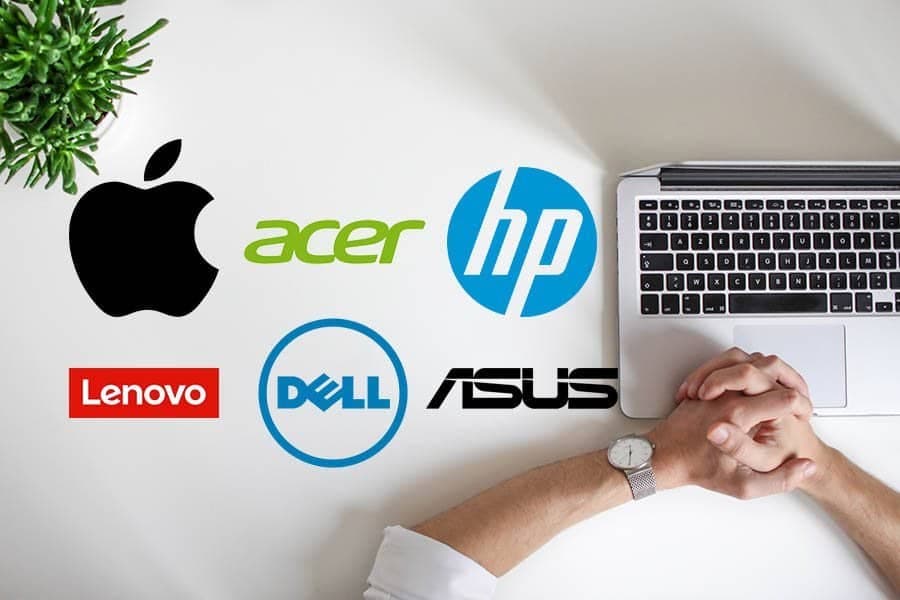
TOP 10 LAPTOP BRANDS IN THE WORLD – YOU MUST CHECK
4,390 views
Follow Us:
4,390 views
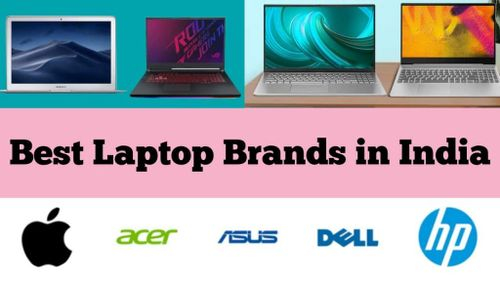
In 1982, John Ellenby and his company Grid Systems released the Compass, the first clamshell movable laptop. While these biases have constantly evolved over the last three decades, the standard design as established with the design of the Compass has remained the standard.
While the concept of opening and closing a laptop has become standard, the bootstrappers we carry around today are a far cry from what was essentially the first movable computer. The top ten laptop brands from around the world you must know their feature and specifications are listed below. These brands have established themselves as a force to be reckoned with in this industry by remaining on the cutting edge of technology, invention, and client support.
We went ahead and made a list. what we consider to be the top ten laptop brands in the world to keep things simple, we've given pros and cons of the brand on the tech specs they provide and how much bang for your buck you get with these purchases.
Top Laptop Manufacturers
Laptops are a necessity in today's world, and fortunately, they are not in short supply, and there is one for everyone with their budget.
There are so many on strike that choosing the stylish one for your needs can be difficult. So, in good light on brands that meet the needs of our consumers, here is a list of the Top Brands in the laptop industry.
- Apple
When it comes to Laptops, Smartphones, Computers, and Tablets, Apple is without a doubt one of the luxury brands. Apple excels in areas such as customer service, manufacturing quality, stoner friendliness, design, power, and display. Their laptops are extremely seductive, with a backlit Apple totem on the reverse, making it one of the fashionable effects to flaunt. When it comes to operating systems, unlike Windows, it is completely crime-free and incredibly simple to use. Currently, if there's one thing almost everyone agrees on, it's that Apple laptops are incredibly dependable and predictable.
Apple has a recurring profit of around $ 230 billion with a net income of nearly $ 50 billion and employs more than workers for one of the fashionable laptop manufacturing companies.
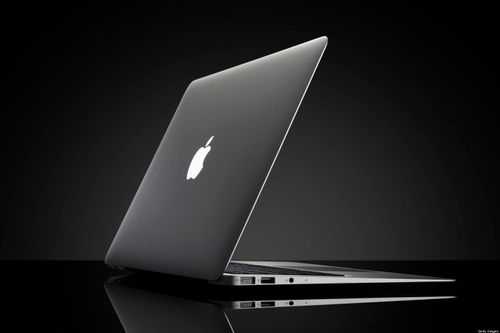
Apple provides stylish client support to MacBook addicts. Aside from physical stores, the company provides free phone support 24 hours a day, seven days a week for 90 days. There is also live chat support available. There is also online tech support.
Pros • The birth model delivers the spectacular result • Bias is extremely quick and responsive. • Outstanding battery life • Apple has a global laptop demand share of nearly 6%. • The Retina display allows for unrivalled color reduplication. • MacBook speakers are excellent. • Excellent customer service • Allows users to install Windows through binary charge.
Cons • Tackle is not set up for gaming. • Advanced pricing labeling • RAM is not upgradeable.
This time, the commercial received a lot of flak for its keyboards, and while it delivered the Retina Display MacBook Air that nearly everyone wanted, all of its laptops felt too iterative, with little to brag about.
- HP
HP, also known as Hewlett-Packard, is an old electronics brand that isn't as well-known as it once was. When it comes to desktop computers, they continue to provide the most dependable machines and are widely used by gamers and professionals.
This leading laptop manufacturing company produces one of the most stylish laptops for students and has a yearly profit of around $ 53 billion.
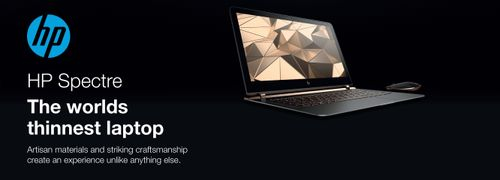
HP may not have always had the most stylish laptop personality, but the most recent HP laptops have taken design cues from their predecessors and raised the bar. The current crop of scrapbooks is quick, significant, and easier for consumers to borrow for their specific systems.
When it comes to laptops, HP offers convertibles, fanless laptops, gaming bias, divisible 2- in-1s, entry-level scrapbooks, and high-end workstations, among other things. Their machines outperform others in terms of performance. Furthermore, their high-end series, such as Spectre, Omen, and ZBook, include some of the most stylish features and offer stylish value for the plutocrat.
The entire HP Spectre and Envy lineup features gem-cut design fundamentals and witching aesthetics. Pavilion, EliteBook, Rudiments, ProBook, Chromebooks, and other series are also available.
HP ranks fifth among all manufacturers in terms of client support options. You can also get some serious protection for your new laptop with options for up to three times of comprehensive bond.
Pros and Cons of the HP
Pros
• HP offers laptops in a variety of price ranges. • It has a competent customer support system. • HP provides a comprehensive device bond of up to three times. • The company has a global laptop request share of 22.6 percent • On high-end gadgets, AMOLED defenses are included. • Convertibles are as thin as possible.
Cons
• Except for the high-end models, all design cues are one-dimensional. • Its tackle consistency does not instill confidence. • Select models have inconsistent battery support.
- LENOVO
Lenovo is a Beijing-based global conglomerate associated with computer manufacturing which is founded in 1986.
Lenovo has a quarterly profit of nearly $ 45 billion and employs more than 200,000 people worldwide.
If you were looking for a laptop at an affordable price then Lenovo is a good option. Nonetheless, their laptops are suitable for a wide range of tasks and can be used by anyone, including professional gamers, businessmen, and university students.
Lenovo is well-known for its business-class laptops, which provide a highly adaptable design. Some of the most stylish movable laptops are in the Yoga and Flex series. Lenovo has recently entered the smartphone industry. In the smartphone industry, it is famous for its long-lasting batteries.

Lenovo provides various ranges in electronics such as desktops, laptops, smartphones, tablets, observers, projectors, and many more. They rock in the industry with their remarkable features such as plates, touchpad, keyboard, display, and audio quality.
Lenovo provides an excellent client support system that is accessible via phone and email. Every laptop series has a dedicated customer service interface for flawless resolution of device-related issues. For offline visitors, the company has several brick-and-mortar service centers around the world. In addition, the company provides reasonably priced services.
Pros • Displays extremely durable tackle factors regardless of price type • Lenovo has a device for every price range. • The client support system responds quickly. • A network of easily accessible service canters that is well-connected.
Cons • The design and structure are gentle. • Plate support is questionable on mid-range gadgets.
- DELL
If you're looks matter to you or you want a stylish Windows laptop, then you must go with Dell laptops. Their specialized and customer support service is truly commendable.
The majority of Dell laptops are inexpensive, and the majority of their design and functionality are straightforward and essential. Still, not everyone prefers a simple design, which is why some users avoid Dell.
Dell is a stylish Windows laptop brand with professional design, reasonable prices, and durability.
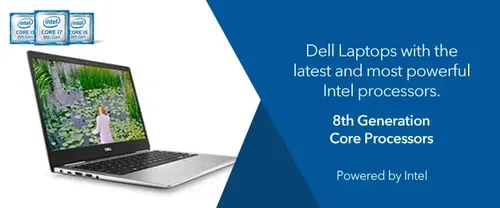
However, if you want to invest one time for a laptop for the rest of your life, then you can go with one of these three series- XPS and Alienware, and Inspiron,
Inspiron is ideal for budgeted customers, while XPS is ideal for high-end operation and, of course, Alienware is ideal for gamers.
According to reports, Dell is also one of the best-selling laptop brands They have laptops for almost every type of customer. Most of the models include all of the most advanced features, such as touchscreens, backlit keyboards, powerful processors, and long-lasting batteries.
Pros • The portable and innovative • Product selection is extensive. • Dell makes lightweight laptop computers. • Every device supports a long battery life. • Excellent and timely customer service. • There is a 30-day return policy. • Newer design elements, such as slimmer bezels, • Excellent display to screen ratio.
Cons
• The company does not provide accessories or new accouterments with the laptops. • Minimum reductions in the actual product price.
- Acer
Acer is a Taiwanese computer manufacturer with a stylish value for your hard-earned money, and you usually get what you pay for with Acer.
Acer, the company founded in 1976, has a 5.7 percent global request share. The company thinks for each group of people so it designs laptops for every price range. All we need in laptops is battery life and this requirement is fulfilled by Acer laptops. Despite their low price, Acer Laptops deliver incredible performance.
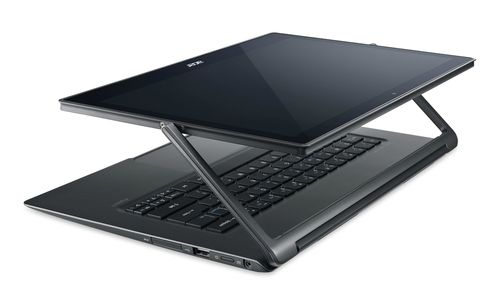
The Chinese laptop brand is known as one of the world's largest manufacturers, and its machines are extremely popular among low-cost users.
Aside from the most comprehensive selection of devices available, Acer also provides a competent client support system to visitors. These include live conversations, phone calls, dispatch, and social media platforms.
Pros • Product selection is extensive. • Gadgets that are inexpensive and versatile • A series dedicated to high-end professional gaming.
Cons • Durability is also a concern • Warranty management is poor • Unapproachable customer service
- Asus
Asus laptops are well-known for being more affordable than other brands, which may be due to their in-house manufacturing of motherboards. Their mini-laptops and Chromebooks are well-known for being stylish and affordable machines. The company is best known for its deception segmentation and trustworthiness.
There was a time when ASUS was not considered among the top 10 stylish laptop brands, but with their extensive collection of seductive and important laptops, they have risen to the top of the list. Acer made a profit of around $30 billion in 2017 and employs nearly everyone.
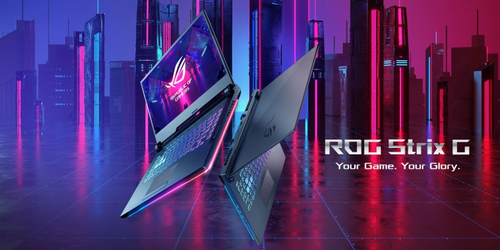
The ASUS ZenBook 13 has one of the most appealing and distinct designs we've seen, as well as an excellent 1080p screen and a long battery life. Consider Asus the David in comparison to the Goliaths of Dell, HP, and Apple.
Indeed, their budget machines provide good performance, a full HD display, and over 4 hours of battery life. when it comes to design, they use ultra-low-cost materials, which is evident if you look at their laptop for under $300.
They also provide potentially significant gaming laptops through their ASUS ROG series, and most gamers now prefer ASUS ROG over MSI and Alienware machines.
It also includes a free accident or slips protection plan on the certain bias.
Pros • Excellent screen-to-body ratio and displays. • Fundamentals of innovative design. • Accident protection plans with a selective bias. • Devoted lineups for an elite gaming experience. • A good selection of convertibles.
Cons • Some devices are top-heavy. • On some gadgets, battery support may be an issue.
- MSI
MSI is a stylish gaming laptop brand that is well-known for producing stylish high-end gaming laptops. MSI is widely regarded as a commanding brand in the games and eSports industries. MSI products are heavily focused on game inventions. Its primary focus is on tablet PCs, plate cards, desktop PCs, and motherboards. It's a commanding brand for gamers, but they don't have much for low-budget users.
Their laptops are generally extremely valuable, but the quality is unimaginable. They are constantly coming up with new inventions and astoundingly designed machines that are appealing to gamers.
When it comes to design, they should take many risks, and I believe it will pay off. They also sell thin laptops for power users, but we don't recommend them for gamers.

Still, they need to improve this, and they should provide client support 24 hours a day, seven days a week. Nonetheless, due to their limited options, they are losing a lot of deals.
More than 95 percent of their scrapbooks contain a high-end plates card as well as important and backmost tackle. Overall, it's one of the most fashionable laptop brands that we simply cannot compare to any other.
Pros • It has a lot of processing power • Incredible figure quality. • A one-of-a-kind set of detectors and trackers. • The gaming community has a global presence.
Cons • There is no client support available 24 hours a day, seven days a week. • Expensive price tag.
- Microsoft Surface
Microsoft Corporation is an American-based company that creates and sells a wide range of licensed software and hardware.
Microsoft's Windows 10 products are designed to be faster, thinner, and more important. It contains numerous features in a single product.
Although Microsoft as a company dates back to 1975, the laptop manufacturing unit only began in 2012.
When it comes to bestsellers, the affordable Surface Go is unquestionably a crowd-pleaser. Similarly, the Surface Pro 4 is a high-end device with slimmer aesthetics. The Surface Book 2 has excellent battery support, and the top-of-the-line Pro 7 is one of the most stylish 2-in-1s on the market.
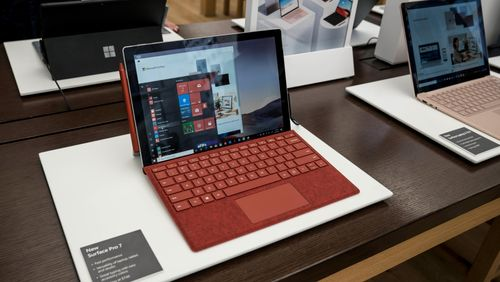
Microsoft Face is one of the top laptop brands in the world and is regarded as one of the early settlers of information and technology.
Microsoft provides reasonable client support and bond content to visitors. Guests receive 90 days of specialized support content, followed by a time-limited bond to complete. For users, there's a risk-free region-specific number, followed by a global support empire of technicians.
Pros • Class-leading hardware • The claim of 99 percent trustworthiness. • Certain gadgets have an exceptional battery life • 90-day specialized assistance.
Cons • Pricing is aggressive. • Manufacturing lacks thickness.
- Razer
In 2005, the company pledged to reinvent gaming through its various gadgets. Their laptops are well-known for their plates and overall game performance. The superior processing power on display justifies the high price tags.
Razer has created a distinct point for laptops, and one can explore the entire range of gaming laptops that are suitable for both work and play. The laptops have stylish plates on a large display and the most recent technology built into the system.
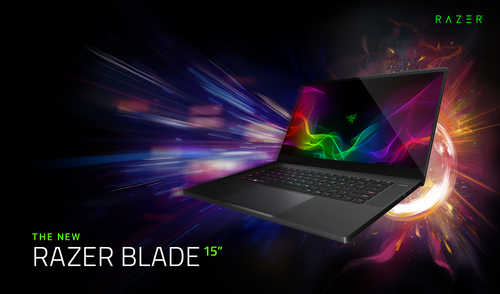
Razer is not a company that produces bias for general consumption. Rather, the company produces gaming laptops with various screen sizes.
Razer provides a good and extensive support community for users to interact with. In the case of major issues, you can communicate with their technicians via online channels, phone calls, and emails.
Acro engineering, the brand's servicing partner, handles physical servicing conditions. The one-time bond offered covers all manufacturing defects.
Pros
• The company creates some of the most fashionable gaming laptops. • Specialized assistance is available through service mates. • It has a worldwide presence. • Gadgets that are insanely important.
Cons
• Price markers that are advanced. • Low storehouse in general.
- Samsung
When it comes to smartphones, tablets, boxes, air conditioners, and refrigerators, Samsung is a household name. It is one of the most popular electronics brands, with service centers all over the world.
Nonetheless, they do not have a large client base when it comes to laptops. Most users avoid Samsung because of its poor battery life and classic design.
The Galaxy Books, Tablet 9, Tablet Odyssey, and Tablet Flash are among the company's stylish line-ups. In addition, the company has a number of Chromebooks in its arsenal.
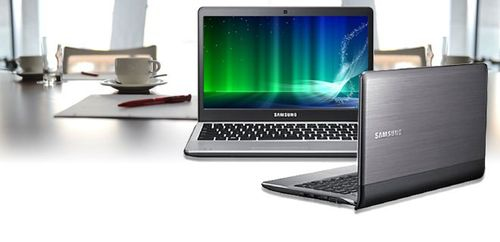
ATIV Book 9 Pro and ATIV Book 9 Plus are two popular laptops from the Korean manufacturer. These laptops are distinguished by their ultra-thin design and high specifications.
Samsung is best known for its excellent customer service.
However, if you encounter any software or hardware-related issue, the experts are only a phone call away. You can also reach them inconspicuously through emails and live chat support. In addition, there are numerous service centers around the world that provide accessible support.
Pros
• Gadgets that are slim. • A good set of specifications. • The gaming lineup is performing as expected.
Cons
• Underwhelming design • Poor battery backup • Guaranties are not covered for upgraded gadgets
Latest News





Reviews & Guides
View All

Best Gaming Smartphones for September 2022

Best LG Television To Buy In 2022

Luxury Watch Brands for women

10 Best Watches Under 15000 in India 2025

New UPI Rules from April 1, 2025: What’s Changing and How to Prepare

Swiggy Instamart Revolutionizes Shopping with 10-Minute Smartphone Delivery Across India

Made-in-India Smartphone Shipments Surge 6% in 2024: Apple and Samsung Lead the Charge

Nothing Teams Up with Royal Challengers Bengaluru for IPL T20 Season 2025: A Bold Move in Tech and Cricket








